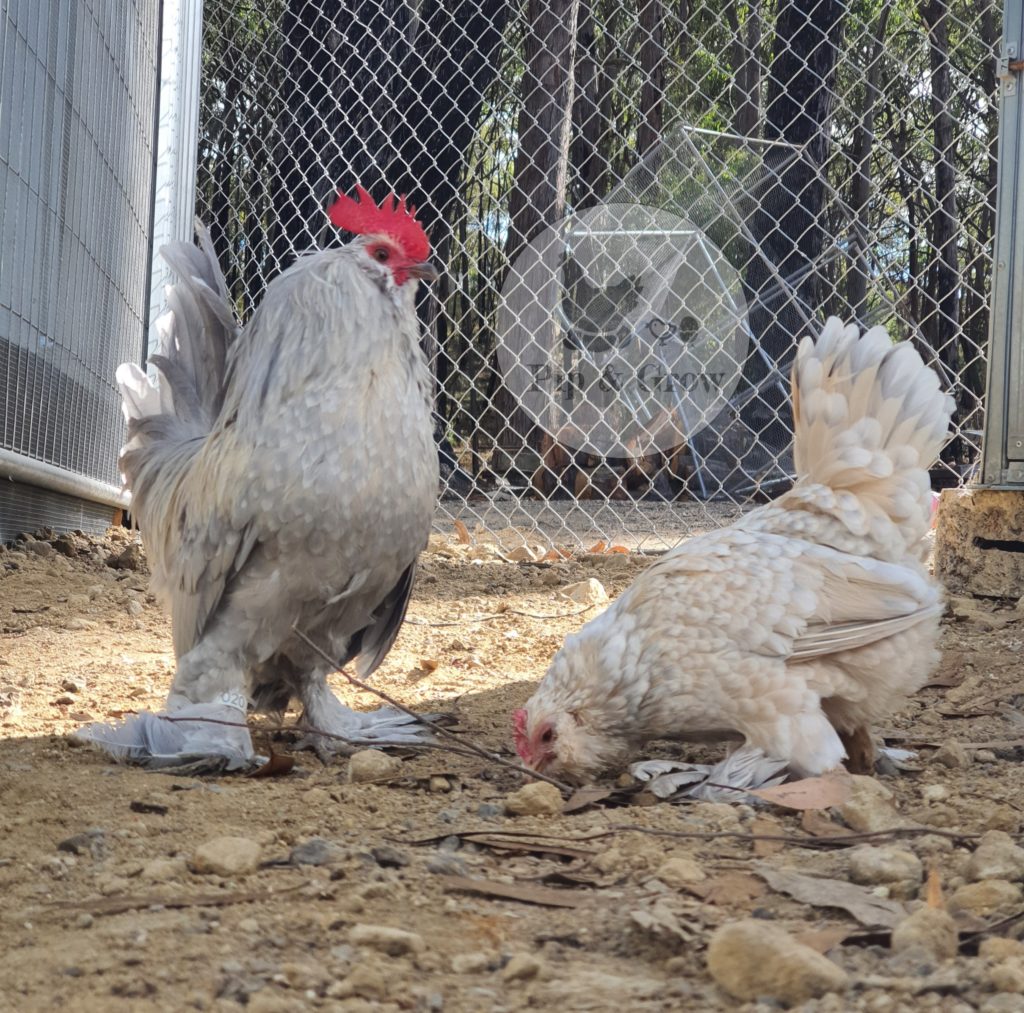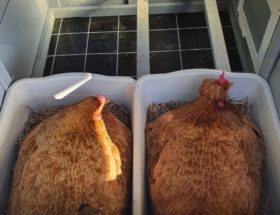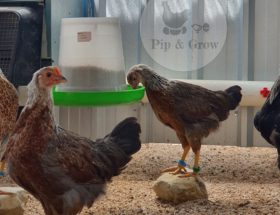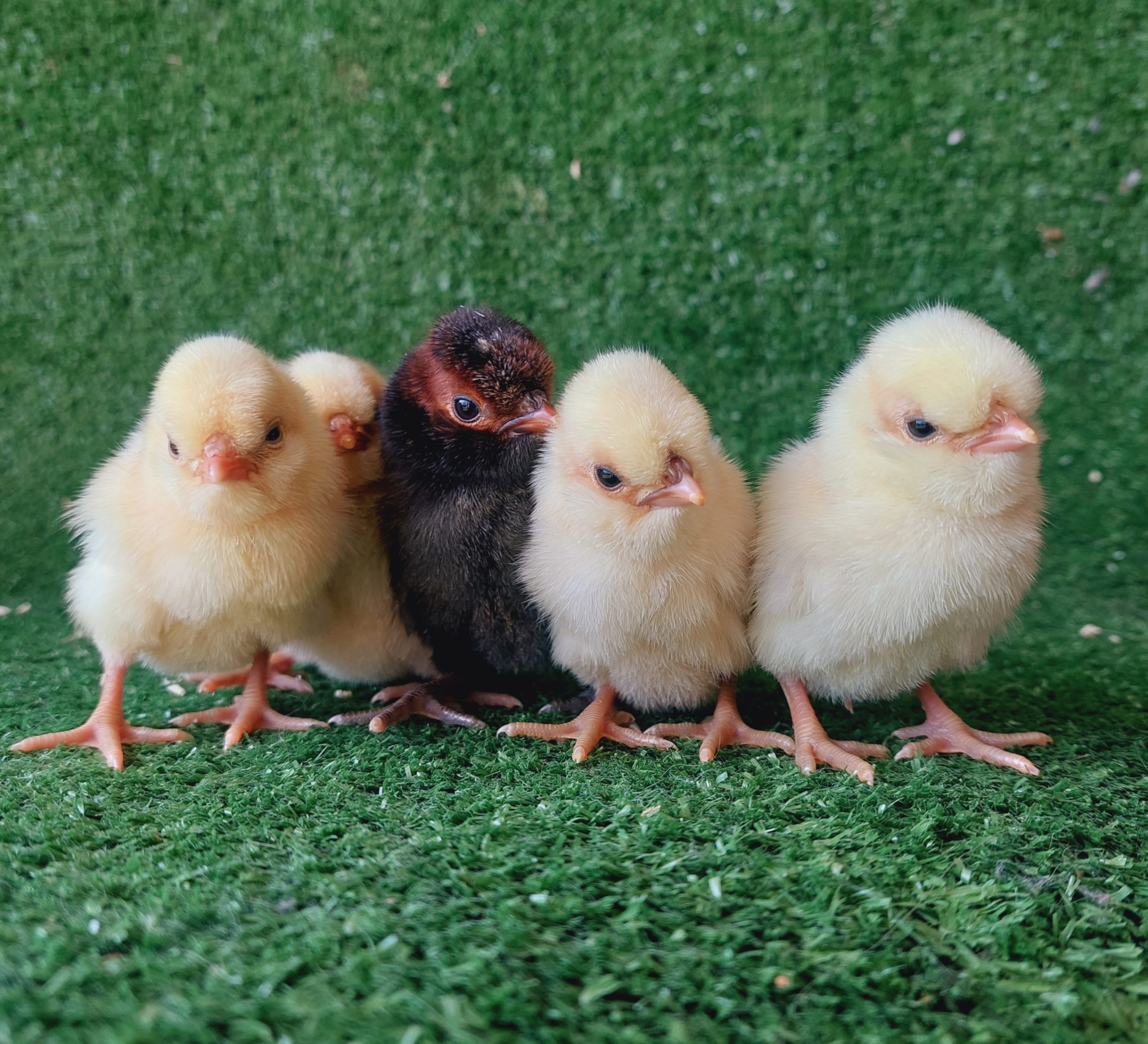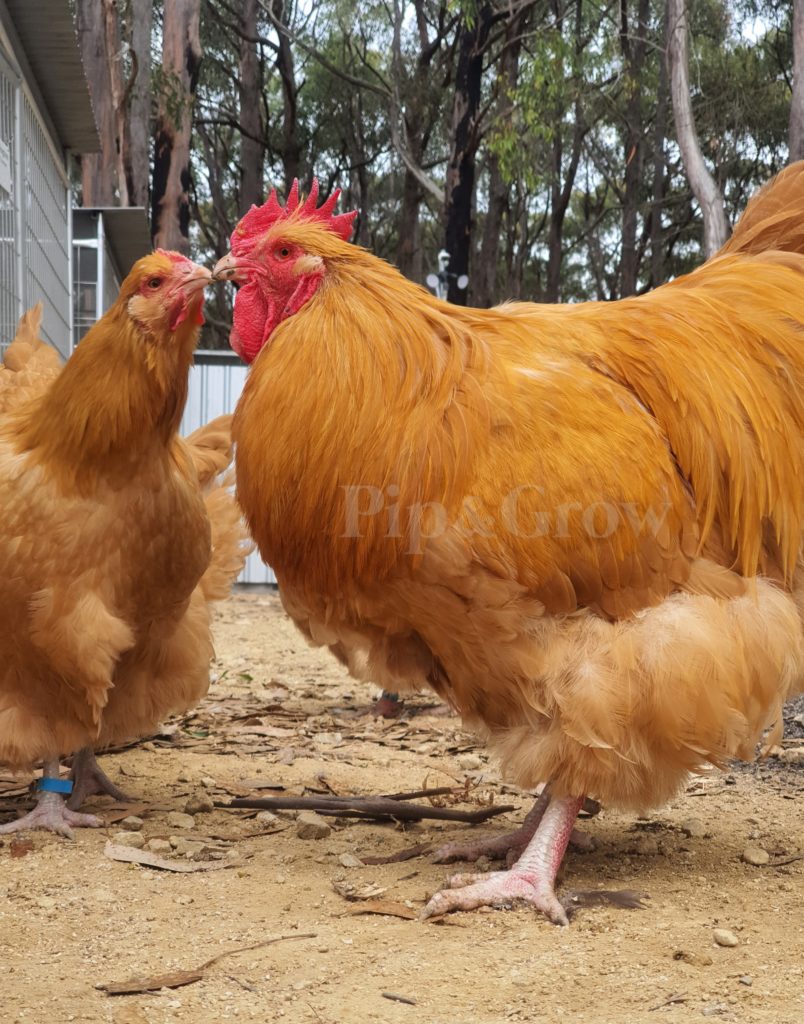
Raising countless chicks every season, we often find that the ones who steal our hearts and catch our attention from a young age often turn out to be roosters.
We often get asked, “How are all your boys so well behaved ?”
Handling them often from a young age doesn’t mean cuddling, loving, and holding them next to your face every day. It means handling them correctly so they understand humans are dominant and not a threat or something to be challenged.
For example, we occasionally hold them under our arm, give them a scratch, and feed them treats. They might try to run or jump away, but they can’t (by gently but firmly holding them) until we let them go -because we are dominant. Contrast this with letting them run away freely whenever they want, which might leave them thinking they can win over us if they try.
Catch them from a higher position by holding the side of the wing, rather than kneeling down and calling them. Most importantly, never allow a rooster to be at the same eye level as you.
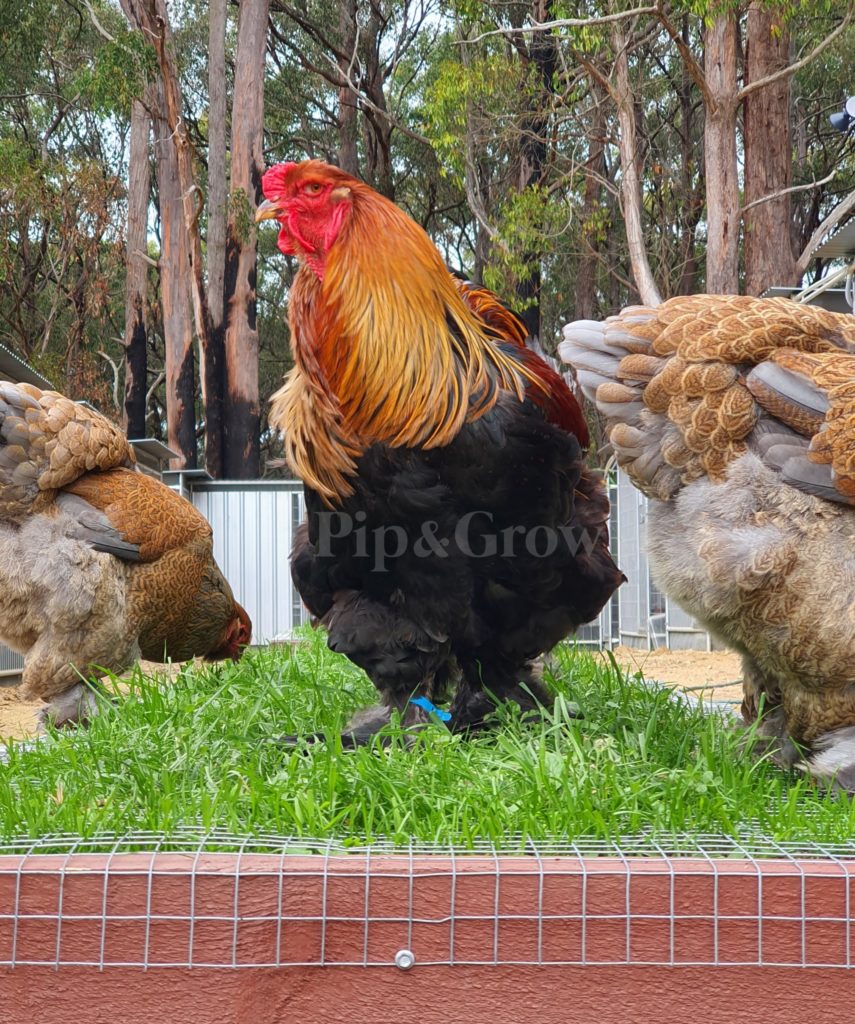
Often, people say they have given “a lot” of handling and care from a young age, but the bird still turns out to be nasty. This can happen for several reasons:
a. Too much love and handling in the wrong way can lead the bird to think he is the dominant one.
b. Some birds are just born that way.
c. It could be a mix of both.
On the other hand, if they haven’t had much contact with humans, they can also attack humans as a defense mechanism out of fear. Balance is the key.
When raising a male bird from a young age, even if they’re well-behaved today, they can turn aggressive tomorrow. Therefore, we train every young male the same way, as we can’t predict which will remain friendly or become aggressive- at least for a good year. Keep in mind, often this aggressive behavior kicks in around first breeding season(8-10month) when their hormone kicks in.
When we first started our chicken journey many years ago, we had a beloved rooster who turned aggressive overnight and attacked us one morning. We wondered, “What did we do wrong?” “How can we fix this?”
Advice from Facebook and Google included carrying him under the arm, chasing him around, squashing his head down whenever we walked into the pen, and using a water pistol. We tried a few methods, and they seemed to work—he wasn’t as friendly but no longer aggressive.
A couple of months later, disaster struck. He attacked our young son straight in the eye. We were terrified, thinking our boy might lose his eye. Fortunately, the rooster missed by a couple of centimeters and only hit his eyelid.
If your beloved rooster shows any signs of aggression toward humans ; kid, adult, male or female, we wouldn’t waste time trying to change his attitude. There may be a few individuals who claim they have successfully trained their roosters, but these cases are rare and not worth the risk, especially if you have vulnerable individuals around— unless there are specific reasons or he is safely penned away.
Some breeders believe aggressive nature is an inheritable genetic trait, but we haven’t found any scientific proof to support this, so we can’t comment on it definitively. We’ve bred from an aggressive rooster (who is no longer with us) and kept his sons and offspring, and none have shown signs of aggression. Conversely, we’ve also seen aggressive offspring from very sweet parents.
However, we do believe in “breed” differences. For example, smaller breed roosters often seem to have a “small man syndrome,” such as Belgian d’Uccle boys, who try to show off their strength in front of hens but run away when we approach.
This may sound disappointing to some, and we might not be the right type of breeder for everyone, but we prioritize temperament over traits when selecting our breeding birds.
At the end of the day, we all keep chickens for our joy, and the last thing we want is to fear being attacked by a rooster when walking into the pens and unable to have a good chat with our own birds in peace!
